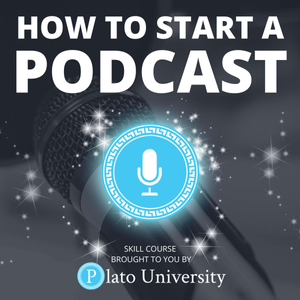
Making Group Work Work (with Jonathan Newton)
12/12/21 • -1 min
Previous Episode

L1: Friend or Foe (with Penny Ur)
All language students speak a first language, but what do we do with it? Some teachers ban it. Some teachers use it to teach English in. Some schools make students sign a pledge never to use it. Penny Ur tells us about what we can do take advantage of students first language, when to avoid it and when even to encourage it.
For more podcasts, videos and blogs, visit our website
Support the podcast – buy us a coffee!
Develop yourself! Find more about our teacher training courses
Watch as well as listen on our YouTube channel
Ross Thorburn: Hi, Penny. To start off, a lot of teachers ‐‐ I certainly count myself as one of these ‐‐ mix up, as Vivian Cook puts it, "Minimizing L1 in the classroom with maximizing L2 in the classroom."
Obviously, those two concepts aren't mutually exclusive. Less first language doesn't necessarily mean more English, does it? Are there any reasons that you think teachers might legitimately want to ban students' first language from their classrooms?
Penny Ur: “Ban”, certainly not. One of my slogans [laughs] is “never say never”. In education in general, language teaching in particular, there's nothing I can think of which include no recommendation, which would include the word never or always. There is a place for the L1 in the classroom. The question is what that place is, how to limit it, and what to limit it to.
The golden rule perhaps is, as Vivian Cook says, "The aim is to maximize the use of L2." If you're speaking the target language, and you're speaking it all the time and your students aren't understanding it, then they're not learning very much.
It makes sense to use the L1 here and there to facilitate understanding so that when you do use the L2, they understand. L2 should only be used comprehensively. If L1 use occasionally can help that comprehension, by all means, use it.
A classic example is introducing a new word in a monolingual class. If you know the students' mother tongue, it's so much quicker and easier to explain the meaning of that word by just giving a quick translation than it is by lengthy explanations in the target language at the end of which the students may not understand.
The end of which [laughs] very often one of the members of the class shouts out the L1 equivalent anyway. Why did you bother to go round the world trying to avoid it? I'd say there is a place. The main point is to make sure that L2 is used most of the time and that it is used comprehensively.
Ross: That's so true, isn't it? Most teachers, and certainly when I come across a word that I don't understand in my second language, what do I do? I translate it. I'm sure that's what most people do.
Penny Ur: Most people use bilingual dictionaries. They don't use monolingual dictionaries. If they want to find the meaning of a word in another language, they look up a dictionary that tells them what it is in their language. It's the most sensible and quickest way to do it.
Ross: Why then do you think so many teachers ban L1 from their classes or even schools? For example, where I've worked before have signs up saying, "No Chinese." Why do you think there's such an aversion to students' first language being used anywhere in language classrooms?
Penny Ur: Partly because it's a slippery slope. For a lot of teachers, once they start using L1, it's so easy to do that they slip into using it much too much. I've observed lessons where the teacher is using the L1 70, 80 percent of the time. There's not much time left for the target language.
What we need to get teachers to implement in the classroom is that the target language is the language we want to use most of the time. One of the reasons why teacher‐trainers discourage the use of L1 is because they're afraid teachers are going to overuse it. It is a well‐grounded fear because, as I said, I've seen it happen. It does happen in a lot of situations. That's one reason.
Another reason is that in modeling classes where you could use the L1, expatriate teachers coming from the UK or coming the States and teaching, say, in Europe, they simply don't know the students' mother tongue, so they can't use it. They make a virtue of necessity. I can't use your language so I shouldn't be using your language. It's better to use only English.
There's another rather insidious message coming across here that English is not only the target language, in the case of teaching English here, which is what we're mostly talking about. English is in some way the superior language, and we should be using it in some way. Th...
Next Episode

Behavior: the Elephant in the Classroom (with Chris Roland)
In this special length end of year episode, we talk with Chris Roland, author of Understanding Teenagers in the ELT Classroom about why students don’t always behave as teachers would like them to, why behavior gets discussed so little on teacher training courses and what teachers can do to better manage their students’ behavior.
For more podcasts, videos and blogs, visit our website
Support the podcast – buy us a coffee!
Develop yourself! Find more about our teacher training courses
If you like this episode you’ll love
Episode Comments
Generate a badge
Get a badge for your website that links back to this episode
<a href="https://goodpods.com/podcasts/tefl-training-institute-podcast-23205/making-group-work-work-with-jonathan-newton-17998730"> <img src="https://storage.googleapis.com/goodpods-images-bucket/badges/generic-badge-1.svg" alt="listen to making group work work (with jonathan newton) on goodpods" style="width: 225px" /> </a>
Copy




